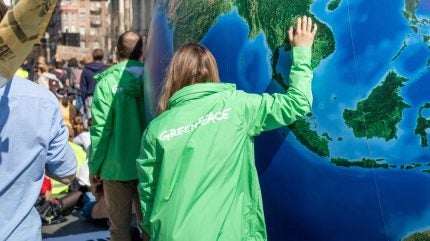
Environmental non-profit organisation Greenpeace Africa has expressed its disappointment at the latest round of talks for a Global Plastics Treaty.
A statement from Greenpeace Africa said: “There is a growing prospect that we may not have a robust plastics treaty as the Ottawa negotiation caved in to the interests of the fossil fuel and petrochemical industry.”
The treaty is an agreement by heads of state, environment ministers and other representatives from UN member states to end plastic pollution and forge an international legally binding agreement by the end of 2024.
Greenpeace USA global plastics campaign lead Graham Forbes remarked on the progress made by states such as Rwanda and Peru, but highlighted that “compromises were made which disregarded plastic production cuts, further distancing us from reaching a treaty that science requires and justice demands.”
Greenpeace Africa project lead for the pan-African plastics project, Hellen Kahaso Dena, added: “The lack of consensus on the inclusion of plastic production cuts in intersessional work is a clear sign that countries are ready to watch a disaster unfolding before their very eyes. A waste management treaty will not deal with the runaway plastic crisis.”
Non-profit organisation WWF (the World Wide Fund for Nature) vice-president and head of plastic waste and business Erin Simon painted a more positive picture, stating that “…negotiators made incremental progress by including some of the key ingredients needed for a successful treaty.
“More work must be done between now and the final round of negotiations if we’re going to deliver an effective and legally binding treaty that people and the planet deserve.”
The fifth Intergovernmental Negotiating Committee (INC-5) is scheduled for 25 November to 1 December 2024 in Busan, South Korea.
Once the treaty is agreed, there will be huge ramifications for the global packaging and waste management industries in material usage, recyclability requirements and life-cycle assessments.



